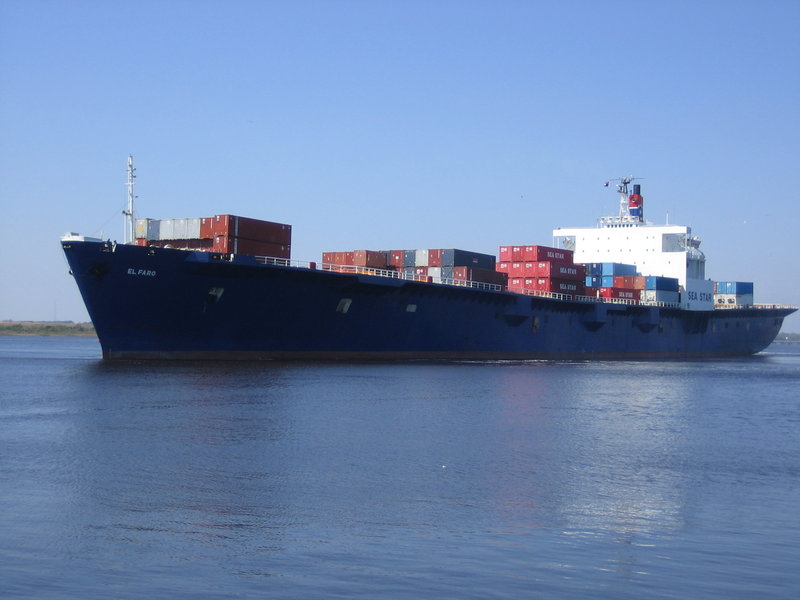The Coast Guard is urging ship operators and engineers to review the design limitations of their main engine lubricating systems, after its investigation into the El Faro disaster found that loss of lubrication and engine failure was a major factor.
In an April 3 marine safety alert, the Coast Guard’s Inspections and Compliance Directorate summarized those findings and what they should mean to ship operators.

A diagram showing how a 15-degree list lifted the El Faro's lubricating oil intake out of its sump. Coast Guard image.
“It is believed that the vessel’s substantial list, coupled with trim by the bow, caused the main engine lube oil pump to lose suction,” the bulletin says. “A detailed modeling and static analysis of El Faro’s lube oil system determined that a severe inclination of the ship, coupled with a relatively low volume of oil in the sump, would likely result in a loss of pump suction.”
Unlike the 40-year-old El Faro, most ships today are powered by diesel engines, Coast Guard officials noted. However, the same caution about how lubrication systems might be affected in heavy weather holds true for all types of engineering plants, they added.
Both U.S. regulations and the international Safety of Life at Sea (SOLAS) requirements have essentially the same rules for the reliability of all propulsion and auxiliary machinery, so that it functions:
• When the vessel is upright.
• When the vessel is inclined under static conditions at any angle of list up to and including 15°.
• When the vessel is inclined under dynamic conditions (rolling) at any angle of list up to and including 22.5° and, simultaneously, at any angle of trim (pitching) up to and including 7.5° by the bow or stern.
“There is no compelling evidence to suggest that U.S. vessels are not in compliance with the above CFR and SOLAS standards,” the bulletin says. “However, given the criticality of propulsion and essential auxiliary machinery, particularly in heavy weather or high-traffic areas, the Coast Guard strongly recommends that:
“Operators verify that their main propulsion machinery, essential auxiliary systems, and emergency generators are designed in compliance with the CFR, SOLAS and classification society requirements for operation in static and dynamic conditions of list and trim.
“Engineering department personnel review the design, arrangement, limiting angles of inclination, normal and limiting high/low lubricating oil sump levels, and casualty control procedures for all systems vital to the propulsion and safety of the vessel to better understand the possible ways to mitigate the effects of heavy weather on vessel operations.”




